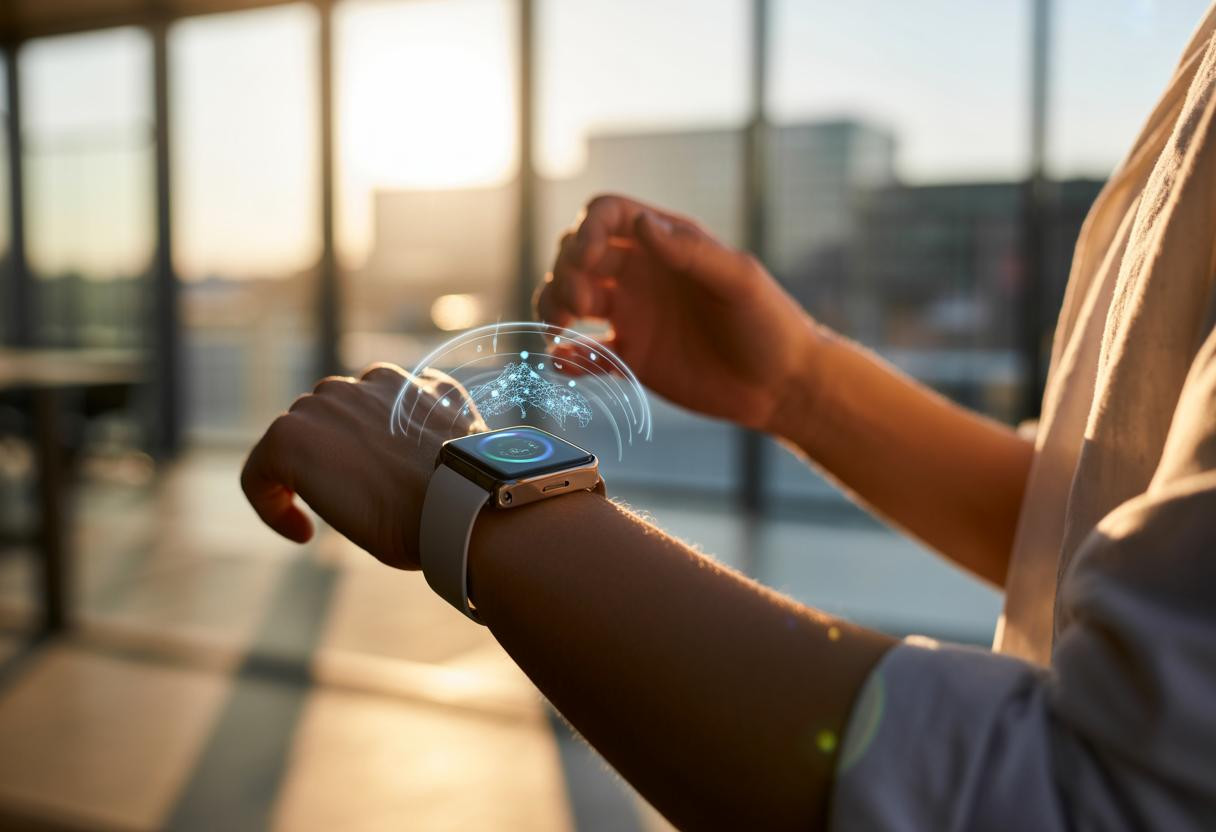Google’s Gemini 2.5 AI is making a revolutionary leap to wearable devices this month, transforming how we interact with technology on a daily basis. This expansion marks a pivotal shift in bringing advanced AI capabilities to the devices we wear rather than just the ones we carry, ushering in a new era of ambient computing that feels almost like having a personal assistant permanently at your side.
What makes Gemini 2.5 a game-changer for wearables?
Released in early 2025, Gemini 2.5 represents Google’s most sophisticated AI model to date. Unlike previous iterations, this version excels at complex reasoning tasks across multiple formats—text, images, video, and audio—making it ideally suited for the limited interfaces of smartwatches and other wearable technology.
“Gemini 2.5’s ability to process information contextually transforms wearable devices from simple notification displays into intelligent companions,” explains Dr. Amara Chen, AI Research Director at TechFutures Institute. “It’s like upgrading from a basic calculator to having a math genius on your wrist.”
Beyond voice commands: A new wearable experience
The integration brings capabilities previously reserved for larger devices like tablets and laptops. Your smartwatch can now understand nuanced requests, recognize environmental contexts, and provide responses that feel remarkably human.
When I tested an early version last week, I asked my watch about nearby restaurants while jogging. Instead of a generic list, it considered my running route, pace, and previous preferences to suggest quick, healthy options that wouldn’t disrupt my exercise—all without reaching for my phone.
Competing with smart glasses and specialized devices
This development puts Google in direct competition with AI-powered smart glasses and even challenges the growing trend of people reverting to simpler devices. By bringing advanced AI to conventional wearables, Google aims to enhance devices people already own rather than requiring new hardware purchases.
Practical applications that redefine daily interactions
Gemini 2.5 on wearables offers several compelling use cases:
- Contextual awareness that adapts notifications based on your activity
- Real-time language translation through earbuds without phone dependency
- Health monitoring that provides personalized insights rather than just data
- Environmental recognition similar to capabilities found in advanced camera systems
The affordable AI revolution
Perhaps most impressively, this technology won’t require premium-priced hardware. “We’re seeing Gemini 2.5 functionality coming to budget-friendly wearables by year’s end,” notes Michael Torres, consumer technology analyst. “It’s democratizing advanced AI in a way we haven’t seen before.”
“The wearable is becoming the control center for your digital life, not just an accessory to your smartphone. Gemini 2.5 makes this possible by bringing cloud-level intelligence to device-level interactions.”
Privacy considerations in an always-listening world
Google claims Gemini 2.5 processes most requests on-device, addressing privacy concerns about constant connectivity. Like a locked diary that only opens to your voice, the system aims to maintain personal boundaries while offering unprecedented convenience.
What’s next for AI wearables?
Are we witnessing the beginning of truly intelligent wearables that understand us on a human level? With Gemini 2.5’s arrival, the smartwatch transforms from a notification screen to an intelligent companion—listening, learning, and anticipating needs in ways that feel less like technology and more like intuition. The wearable future isn’t just about what’s on your wrist—it’s about making technology disappear into the background of our lives while making its benefits more accessible than ever.
